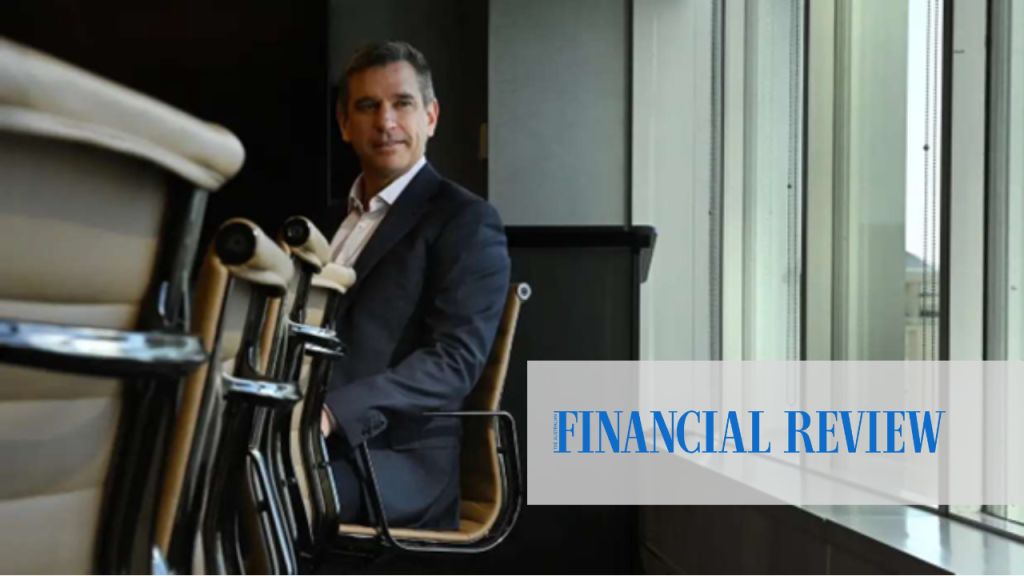Three little-known stocks driving this veteran’s mega returns

“I would not invest in any other rare earths company in the world,” James McDonald tells The Australian Financial Review.
The Pengana Capital Group portfolio manager is speaking of Brazilian Rare Earths – a South American-based developer that listed on the ASX late last year and helped fuel a more than 50 per cent return for McDonald’s fund in the past financial year.
“Seriously,” McDonald continues. ‘The grade is just so much better. It’s a real risk for other rare earth players.”
McDonald was among those to buy in at the IPO (which was also backed by iron ore billionaire Gina Rinehart and fellow ASX-listed Whitehaven Coal). He believed that the company’s project in the Brazilian state of Bahia could disrupt the entire global rare earths industry that is considered integral to next-generation technology including wind turbines and electric vehicles.
“They’re used to make magnets for motors. If you use rare earths, those magnets are much stronger and so the motors can be lighter,” McDonald explains.
“China has always controlled the market and has always discouraged new supply coming on in the rare earth market – but soon they won’t be able to play that game anymore.”
It seems other investors agree. The shares are already up 60 per cent since the company’s December listing. It is also one of a handful of stocks that has helped drive McDonald’s Pengana High Conviction Equities Fund to an impressive 55.8 per cent return in the 2024 financial year.
The fund, by its very nature, is specialised.
McDonald and co-manager Jeremy Bendeich only hold a maximum of 20 stocks at any one time, which are typically in the small to mid-cap area of the market and listed either in Australia or offshore. It is a big pool of potential companies to wade through – but over the years a handful of common themes have emerged; biotech is one of them.
Investing with clarity
The fund banked an early win soon after starting up in 2014 with an investment into blockbuster radio-pharmacology developer Telix Pharmaceuticals at just $1 a share. The shares last traded near $20 apiece.
“Telix really helped set the fund up for years of good performance,” says McDonald, who no longer holds the stock.
His experience in the biotech sector goes further than his investment in Telix, however.
He spent 11 years in London working under famed global equities investor Peter Hall before the latter’s shock exit from the Hunter Hall firm in 2017 – a move that would ultimately form Pengana Capital Group.
While at Hunter Hall, McDonald and Hunter famously backed ASX-listed liver cancer treatment company Sirtex Medical from its earliest stages to near its $1.9 billion buyout in 2017.
In other ways, McDonald’s history in the healthcare space goes back even further. He was raised by a pharmacist mother, who was herself an avid investor, in remote North Queensland.
“I had my pilot’s licence before my car licence because where I grew up was so remote,” he says. “My mother is an investor in the fund now … and we still talk about stocks when I go home.”
McDonald’s experience in the health sector has led him to his latest success – cancer treatment developer Clarity Pharmaceuticals.
“With Clarity, we started investing in September last year, and it has really been the big winner in the fund,” he says.
Australian investors don’t like pure biotech because of the volatility, but I think you just have to live with that. – James McDonald
Up about 400 per cent, since McDonald picked up the stock, the company’s acceleration has been further buoyed by a broader rush back to the more speculative end of the biotech market after global interest rates appeared to have peaked in October.
“When interest rates went up substantially, it really hit the biotech sector hard. Rates haven’t really come down yet but there’s been a big rally in a lot of smaller stocks in the biotech index which was very helpful,” he said.
“But I also think a lot of it’s just been the progression of the companies like Clarity, which have started to deliver on their promises.”
McDonald is well versed in the biotech sector’s boom-and-bust reputation.
“But I like the healthcare sector generally because it’s defensive growth – the fundamentals are good and there are really interesting things going on.”
“If you do your homework, you can make great returns. Australian investors don’t like pure biotech because of the volatility, but I think you just have to live with that,” he says.

Titanium is used in aerospace and defence engineering, including in the F-35 fighter jet.
That volatility was on full display with another of McDonald’s holdings Immutep, which sank around 30 per cent in the final days of June on poor results for one trial. It then rallied back another 25 per cent last week following stronger results from a separate trial.
The fund’s penchant for niche sectors is evident in another well-performing holding IperionX – an ASX small-cap darling that produces high-performance titanium alloys used in aerospace and defence engineering as well as consumer technology like new generation smartphones.
McDonald first picked up the stock in early 2023 and the shares have nearly doubled in the past 12 months.
The company’s core technology helps produce high-performance titanium alloys, from minerals and scrap using less energy and at a lower cost than existing methods.
McDonald topped up his holding as recently as May and between the dual Nasdaq and ASX-listed stakes, IperionX now accounts for around a quarter of the fund.
“It’s the wonder metal. Stronger than aluminium, lighter than steel and more corrosion resistant than stainless steel – if it was cheaper, we’d use a lot more of it,” he says.
“The problem with titanium is it bonds so quickly with oxygen so it’s very difficult to manufacture. This really just simplifies that process.”
The metal is estimated to have a $4 billion global market, but with companies like lperionX bringing down the price of production that could soon grow, says McDonald.
“Aluminium and stainless steel are both $150 billion to $200 billion global markets – that’s really the core thesis behind the stock.”
“There’s no titanium metal produced in the US at the moment, but there are a lot of military applications and that’s primarily why the US government is so keen to bring that supply chain back,” he says.
View original AFR article here.

